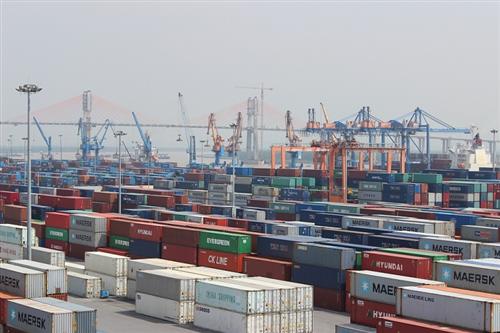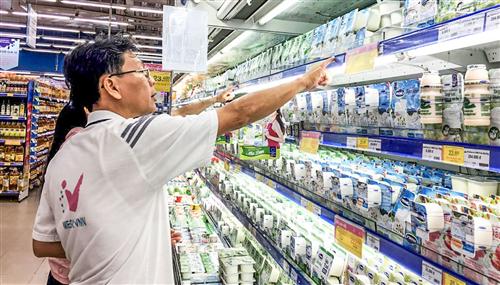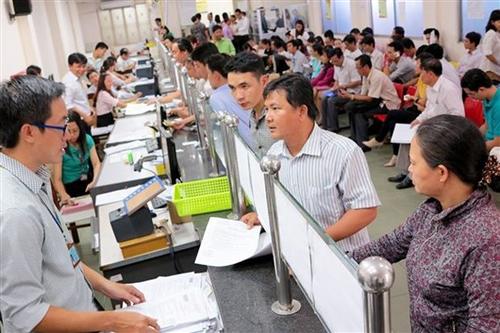VN posts trade deficit of $176 million in two months
VN posts trade deficit of $176 million in two months
Viet Nam reported an estimated trade deficit of US$176 million in the first two months of the year, according to the General Statistics Office of Vietnam (GSO). 
The domestic economic sector posted a deficit of $3.94 billion while the foreign-invested sector (including crude oil) grossed a surplus of $3.76 billion.
The GSO said that total export revenue during January-February picked up 2.4 per cent year-on-year to $36.92 billion despite the impact of the COVID-19 epidemic, partly thanks to Samsung's export of its new mobile phone model S20.
Products with high export value included telephone and spare parts ($6.9 billion, up 2.3 per cent); electronic products, computers and components ($5.4 billion, up 26.7 per cent); machinery and equipment ($3 billion, up 19.6 per cent); and footwear ($2.7 billion, up 3 per cent).
Meanwhile, export revenue of several farm produce fell, such as seafood ($921 million, down 17.7 per cent); coffee ($497 million, decreasing 9.8 per cent), vegetables and fruits ($481 million, falling 17.4 per cent); cashew nut ($315 million, dwindling 19.3 per cent); and pepper bean ($81 million, dropping 18.8 per cent). Rice is an exception, earning $372 million, up 20.5 per cent.
The US remained the largest importer of Viet Nam, splashing $9.8 billion on Vietnamese commodities, surging 19.6 per cent from the same time last year.
Revenues from exports to China increased by 3.7 per cent to $4.8 billion and to Japan by 8.9 per cent to $3.2 billion while the value of exports to the EU and ASEAN dropped by 7.7 per cent to $5 billion, and 9.3 per cent to $3.5 billion, respectively.
During the period, Viet Nam’s import revenue inched up 2.4 per cent to $37.1 billion, with high-value imports including electronic products, computers and spare parts ($8.6 billion); equipment, tools and components ($5.3 billion); and telephones and components ($2.1 billion).
Viet Nam imported $10 billion worth of products from China in the two months, falling 0.4 per cent from a year ago. It spent $4.5 billion on goods from ASEAN, $2.8 billion on goods from Japan, $2.1 billion on EU products and $2.1 billion on US goods.

























